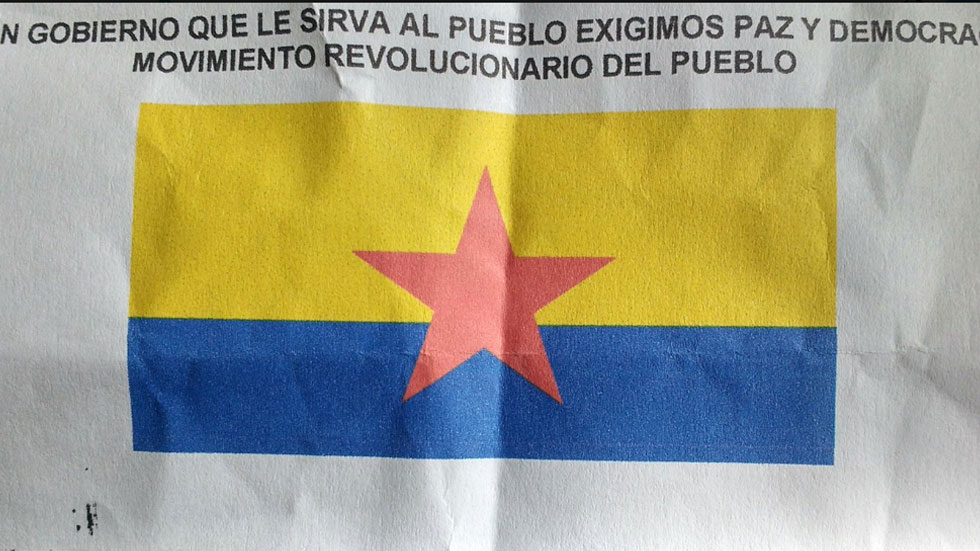The People’s Revolutionary Movement (MRP) on Wednesday denied responsibility for a recent bomb attack that killed three in Colombia’s capital Bogota and knowing any of the eight suspects arrested after the attack.
On the day the suspected MRP members were being indicted behind closed doors on undisclosed charges, the Bogota-based group sent out a press statement reiterating its condemnation of the attack.
Colombia police arrest 8 suspects linked to Bogota bomb attack
Additionally, the group said that the nine arrested in the aftermath of the attack were not part of the organization officially accused of the first deadly terrorist attack in Bogota since 2012.
One detainee was almost immediately released as he was not linked to the police investigation..
People’s Revolutionary Movement
Meet the MRP, the group accused of the Bogota terrorist attack that killed 3
The group that has set of several “pamphlet bombs” in and around offices of entities accused of corruption additionally reiterated its initial condemnation of what it called a “cowardly attack.”
People’s Revolutionary Movement
The president announced the day after the June 17 terrorist attack, authorities were investigating three hypotheses. There has been no indication any of these three investigations have been closed or are even related to the arrest of the alleged MRP members.
The Prosecutor General’s Office has confirmed to also be looking for two men based on the description of eye witnesses.
Leaked sketches based on these eye witness accounts did not resemble any of the four male detainees.
Bogota bomb attack part of a larger plot: Colombia police and prosecution
The attack appeared to be a so-called “spoiler attack” as it took place just days before the finalization of the disarmament process of 7,000 guerrillas and more than 1,600 militia members of the country’s formerly largest and during the biggest military overhaul since the 1990s.
Just some likely suspects for the Bogota shopping mall bombing
Both the FARC’s demobilization and the reform of the military are part of a 10-year peace process that seeks to end more than half a century or political violence and armed conflict that has left more than 265,000 Colombians dead.
While enjoying virtual unanimous support from the international community, the process is received far less enthusiastically in Colombian society where, after decades of war and multiple peace processes, many are skeptical of the peace process with the FARC.
Additionally, the country’s hard-right opposition has fiercely opposed the process under the leadership of former President Alvaro Uribe, under whose watch some of the worst war crimes in the entire armed conflict were committed by the military, in some cases in collusion with paramilitary death squads.


